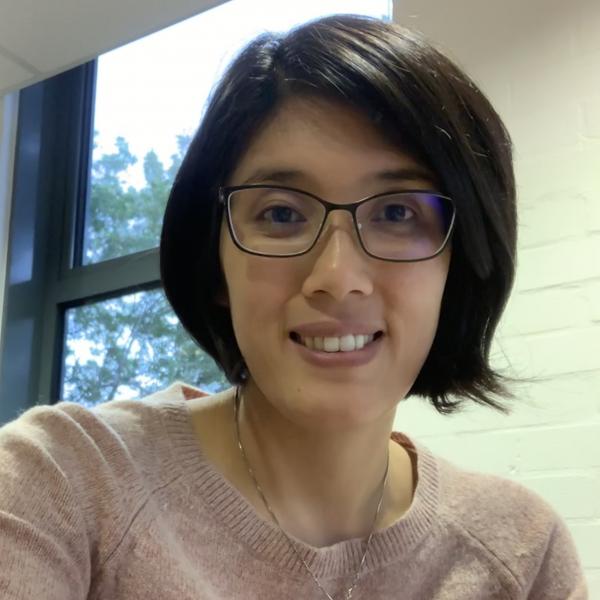Dr Ut Na Sio
PhD
Management School
Lecturer in Work Psychology


+44 114 215 7194
Full contact details
Management School
Room B022
Sheffield University Management School
Conduit Road
Sheffield
S10 1FL
- Profile
-
I am a Lecturer in Work Psychology. Before joining the Management School in 2019, I was an Assistant Professor in Psychology at the Education University of Hong Kong.
I completed my PhD at Lancaster University, UK and my postdoctoral training at Carnegie Mellon University, US.
My program of research focuses on identifying the cognitive factors that influence individual and group problem solving, particularly for problems requiring creativity and innovation.
I also examine how solutions to these problems can be facilitated through the use of different approaches, e.g., incubation, sleep, and task-switching.
- Research interests
-
My primary research focuses on examining cognitive processes underlying creative problem solving, and identifying ways to manipulate these processes to facilitate creative thinking at both individual and group levels.
- Publications
-
Journal articles
- The impact of creativity training on creative performance: a meta-analytic review and critical evaluation of 5 decades of creativity training studies. Psychological bulletin, 150(5), 554-585. View this article in WRRO


- Effects of task characteristics and task-switching on remote associates test problem solving. Journal of Cognitive Psychology, 36(5), 595-616. View this article in WRRO


- Replicating and extending hemispheric asymmetries in auditory distraction: no metacognitive awareness for the left-ear disadvantage for changing-state sounds. Journal of Cognitive Psychology, 1-21. View this article in WRRO


- Determinants of creative thinking: the effect of task characteristics in solving remote associate test problems. Thinking & Reasoning, 28(2), 163-192.


- How should educational effects be communicated to teachers?. Educational Researcher, 50(6), 345-354.


- Silence is golden: The effect of verbalization on group performance.. Journal of Experimental Psychology: General, 147(6), 939-944.


- The Facilitating Role of Task Alternation on Group Idea Generation. Journal of Applied Research in Memory and Cognition, 6(4), 486-495.


- Interrupted: The roles of distributed effort and incubation in preventing fixation and generating problem solutions. Memory & Cognition, 45(4), 553-565.


- Sleep promotes analogical transfer in problem solving. Cognition, 143, 25-30.


- Fixation or inspiration? A meta-analytic review of the role of examples on design processes. Design Studies, 39, 70-99.


- Incubation and cueing effects in problem-solving: Set aside the difficult problems but focus on the easy ones. Thinking & Reasoning, 21(1), 113-129.


- Sleep on it, but only if it is difficult: Effects of sleep on problem solving. Memory & Cognition, 41(2), 159-166.


- Does incubation enhance problem solving? A meta-analytic review.. Psychological Bulletin, 135(1), 94-120.


- The Role of an Incubation Period in Creative Problem Solving. Creativity Research Journal, 19(2-3), 307-318.


- Should We Communicate the Uncertainty of Educational Effects to Teachers?. Journal of Research on Educational Effectiveness.


- The facilitating role of task alternation on group idea generation.. Journal of Applied Research in Memory and Cognition, 6(4), 486-495.


Book chapters
- Incubation and cueing effects in problem-solving: Set aside the difficult problems but focus on the easy ones, Insight and Creativity in Problem Solving (pp. 113-129). Routledge


Conference proceedings
- INTERACTIVE ACTIVATION NETWORKS FOR MODELLING PROBLEM SOLVING. Computational Models of Cognitive Processes (pp 185-195)


- The impact of creativity training on creative performance: a meta-analytic review and critical evaluation of 5 decades of creativity training studies. Psychological bulletin, 150(5), 554-585. View this article in WRRO
- Research group
- PhD Supervision
I am interested in supervising students in the following areas:
- Creative problem solving
- Group cognition
- Interruptions (e.g., breaks/ task-switching) and problem solving performance
Are you interested in applying for a PhD?
Dr Ut Na Sio has previously supervised:
Name Thesis title Year of completion Lee Rabbetts Creative style: The measurement, changeability and relationships with leadership and performance 2025
